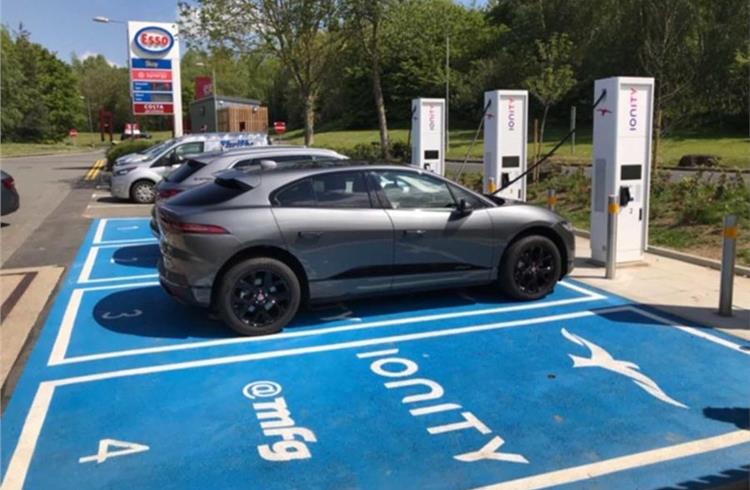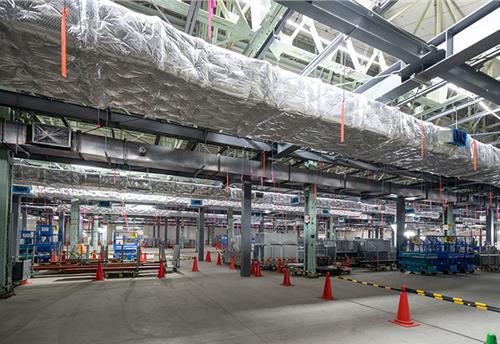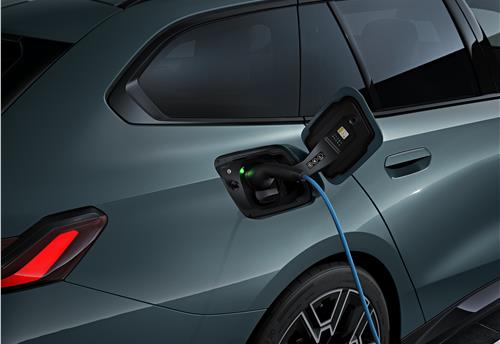VW and Ford backed Ionity claims UK’s most powerful EV charger
Ionity's 350kW station offer EV charging in under 20 minutes - although no EVs are yet capable of such charging capability.
Charging network Ionity, backed by carmakers including Ford and Volkswagen, has opened the most powerful charging station for electric vehicles yet to launch in the UK, promising charging times of under 20 minutes.
The 350kW charging station is in Maidstone, Kent and is the first move in bigger plans by the firm to offer more than 40 UK sites, each with up to six high-power chargers. Ionity said it will soon add locations at Milton Keynes and Gretna Green.
There are currently no electric vehicles on sale which are capable of charging at 350kW. The first compatible car is expected to be the upcoming Porsche Taycan, which will go on sale early next year. However, all electric vehicles are able to charge at the points, but just at a lower rate of charge.
An Ionity spokesman said: “[Our] 350kW UK charging network is future-proofed, delivering infrastructure capable of charging times as low as eight minutes depending on the capacity of the vehicle’s battery, thus making e-mobility a convenient, reliable and everyday experience.”
Currently, the Audi E-tron has the highest charge rate of any electric model currently on sale at 150kW.
There are a handful of 150kW charging stations in the UK, including those recently announced by rival firm BP Chargemaster, but most public charging points are 50kW, meaning much slower charging times.
The Ionity spokesman added: “High-power charging is widely regarded as essential to the increased adoption of electric vehicles, making long distance journeys far more viable than the much slower 50kW alternatives.”
Manufacturers are slowly introducing electric vehicles with higher charging capabilities in a bid to reduce these times. The general industry consensus is that once charging times are nearing 10 minutes for around 80% charge, those car owners wedded to petrol or diesel vehicles will more seriously consider changing to a zero-emission machine.
Ionity, a joint venture between Daimler, Ford, BMW and the Volkswagen Group, plans to install up to 2,400 chargers by 2020 across Europe.
Ionity said its UK charging points will use 100 percent renewable energy, provided by energy technology firm Octopus Energy.
Michael Hajesch, CEO, Ionity said: “We are delighted to be launching our network in the UK with our first station in Maidstone. As car manufacturers continue to launch electric vehicles with bigger batteries to provide a longer range, high-power charging is an essential part of the e-mobility transition process thus making the e-journey a smooth and seamless experience.
RELATED ARTICLES
Nissan shows in-construction all-solid-state battery pilot line in Japan
Under the Nissan Ambition 2030 long-term vision, Nissan aims to launch EVs equipped with the batteries by fiscal year 20...
BMW Group sells 82,700 BEVs in Q1 2024, sees growth across all key markets
The company has delivered a total of 82,700 fully-electric BMW, Mini and Rolls-Royce vehicles to customers worldwide, up...
Lanxess and IBU-tec to develop iron oxides for LFP EV batteries
Collaboration aims to improve performance of LFP cathode material; reduced carbon footprint of batteries through use of ...





 23 May 2019
23 May 2019
 8007 Views
8007 Views





 Autocar Pro News Desk
Autocar Pro News Desk




